- Home
- Hugh Howey
Beacon 23: The Complete Novel Page 3
Beacon 23: The Complete Novel Read online
Page 3
NASA had some choice words, of course. No more trading with ships passing through the system. I am officially on quarantine. Protocols across all the beacons are being affected because of my dumb ass. I remember a morning in flight school when the entire platoon had to run thirty klicks because of some wisecrack I made. I’m still making trouble for everyone else. Before I can stop it, my mind jerks back to my last day in the war, with my squad dead, three platoons hunkered down, oblivion approaching . . .
I clamp down on those memories. I embrace fresher torments. But my shrink warned me about this, how anger and depression get misassigned, and how if I don’t work through shit it’ll keep resurfacing in ways I don’t expect. Maybe it’s not the eight dead or the five thousand saved that have me feeling this way. And maybe taking this job was the worst way possible to wrestle down my demons. They’ve got me trapped here, in my beacon. And vastly outnumbered.
If my private torments aren’t going away anytime soon, at least the cosmos has a short memory. The armada of news ships with their channel stations painted across their hulls has come and gone. As well as the private yacht rubberneckers and souvenir seekers and scavengers. The busted cargo ship was like a spilled can of soda. A swarm of ants and bees came, and now are gone.
NASA, bless them, can only concentrate on the fact that my rebooting the beacon erased the last few hours of recordings from the scanners, and so we have no vid of the disaster. They say I missed a prime opportunity to record just what happens when a ship collides with a meteor field in hyperspace. I might’ve saved five thousand lives, but the way my bosses are talking, it was too cheap an exchange for what might’ve been learned.
Funny, I thought I was getting away from such hard calculations when I left the army. I suppose half a klick won on some alien rock has a price about the same as a paragraph gained in the storehouse of human knowledge. Everyone’s gonna die anyway, right? Well, someone should explain to these clowns that borders aren’t forever either, and neither are their theories. It all goes. They can damn me all they like for choosing to save lives. Guess we each have our own stupid priorities.
•••
I sit with my back to the restored GWB to calm these thoughts. Whatever the dome does to the local gravity field to warn ships of danger, it does something just as useful to my head. I worry less when I’m up here. It’s like two fingers of whiskey that keeps tumbling through my veins, never stopping, never subsiding, never becoming too much.
Outside the porthole in front of me, a massive field of debris catches the starlight. The only NASA scanner that remembers what happened is my imperfect and bewildered brain, and it replays the impact in a loop. I see a flash of light, asteroids as big as moons bursting into clouds of bright powder, cargo that survived the impact scattering, the rear half of the massive ship popping out of hyperspace and exploding into countless pieces, and a vortex of bouncing mass and momentum and splintering steel and rock.
I described it all to the labcoats as best I could. I nodded at the animations they came up with. I watched them lumber around my beacon, going through all the panels and crannies, sniffing out the sabotaging little vermin that tormented me with their squeaks and clicks, everyone lecturing me on the new quarantine protocols. As shrapnel and rocks clinked and clanged off the beacon like hailstones, and men smarter than me frowned at whatever they were calculating in their noggins, I wondered if they’d send me home like the army had. But they packed up and went zipping back to Houston, leaving me in this funk.
The debris has kept on striking the beacon since they left, though the patter is becoming more sparse. Ignoring the labcoats’ reassurances, I’ve taken to sleeping in the lifeboat, just in case. I retrieved the walk suit from the airlock—the thing smelling of a decade of sweat and storage—and I wear it all the time now. I sleep with my helmet right in front of me. The first two nights, I slept with the helmet on, the visor closed, my exhalations fogging my vision.
The sight of myself in the mirrored visor isn’t pretty, I have to admit. I look like a dead man. Gaunt. Unshaven. Older than my thirty-five years. But I keep the image of myself close at hand, my helmet within reach, just like in my army days. I long ago learned to embrace the illusion that a thin veneer over my skull might save me. No rock to hide under, so this will have to do.
In the middle of the night last night, a whizzing hunk-of-something punched a neat hole in the upper solar array, waking me up and sending me scrambling for a damage assessment. An awful clatter followed as a small storm of debris peppered the hull—but the beacon never lost integrity. I’ve been keeping an eye on the atmo gauges ever since. The alarms should sound if something goes amiss, but I keep wondering what happens if the alarms are the first things damaged? Or if I’d even hear the alarms in the lifeboat at night. This is like living in the trenches again, just a different kind of bombardment. But there’s that nervous, anxious energy every second, that knowledge that your life could end before you have enough time to call out for your momma. Just a whistle, and then a cloud of red. Or in this case, a sharp bang, a hiss of vacuum equalizing, and then a cold, asphyxiating death.
To keep my mind off things, I go over the scans I managed to get of the aftermath. I caught a lot of the debris expanding and ricocheting, and I got great vid of the two scavenger ships that caused the wreck in the first place. Grabbed their signatures and hull IDs before they could zip off into the FTL yonder. I’m sure the sigs are bogus, but it made me feel useful. And with the full zoom on the viz scanner, I can sit and watch the little bastards in their spacesuits as they sift through the drifting cargo, getting what they can, stuffing their holds, then leaving.
Somewhere out there, eight crewmembers are dead and drifting—unless the navy found the bodies or one of the rubberneckers thought a corpse would suffice as a souvenir. Somewhere out there, a bunch of TVs are switching over to news of the war, and how it’s edging into sector seven right now, and which planet might fall next. Pretty much everywhere but here, eight dead is old news. Nothing to see. Guess you’ve got to be pretty lonely to care about the loss of a handful of strangers.
And I suppose my view is shaped by the portholes around me. Eight people probably died from slipping in their showers in the time it took me to have this thought right here of them slipping in their showers. But it’s more than the deaths I saw; it’s the destruction. The noise with which we go seems to make it count for more. I think of my buddies who checked out via hand grenade versus those who died from MRSA back in the VA. We barely notice the latter. They’re statistics. Go quietly, and you’re a number. Go in spectacular fashion, and you’re a name.
I never wanted to be a name. I think of how I nearly went out, with the rest of my squad. I think of the people who want to make a movie out of that last stand. The publishers with their book deals. The ghostwriters who clamor to write of ghosts.
Everyone wants me to relive that. I just want to get lost. I asked for a post somewhere where no one would find me, where no one would know my name.
So they gave me a number. 23. My little beacon.
But then the bright flash came for me anyway, and a squad drifts dead in space, and the war is creeping closer.
I can’t sleep at night.
And maybe that’s a good thing.
• 7 •
An alarm is going off up in the command station, four flights away from the airlock wing. I’ve truly crawled into a hole. Now I climb out to see what in the world is beeping. With the walk suit on, the ladder is a bitch. I climb with one hand, my helmet in the other, thumping up the rungs by my hip. This is me losing my shit. This is NASA’s investment in me gone to waste.
I crawl through the power and life support pod, through my old living quarters, and up into what I like to think of as my office. One of the scanners is flashing. I’m lumbering that way when the QT beeps with a message. I decide to check that first, knowing it’ll be a message from NASA, probably asking me to check whatever’s beeping on the scanner. Thes
e little messages from Houston are the only company I have. The contact is nice. Too bad Houston is full of assholes and taskmasters. Maybe prisoners in isolation feel what I feel: they hate their guards, but a beating now and then is at least some human contact.
I check the readout. I am their trained monkey.
Picking up life sig
This seems so unlikely that I assume the station is still glitching from the reboot. A second message beeps through before I can even turn to check the scanner:
Check scanner
“I am,” I say. “Jeez.”
Sometimes I wish the QT weren’t quite so instantaneous.
Letting out a sigh, I cross the command room to check the bio scanner. It’s one of the more sensitive instruments on the beacon, and that’s saying something. If lichen or viruses start collecting on the outside of the hull, the scanner sounds an alarm, like it’s doing right now. I acknowledge the alarm to shut it off, but the light keeps flashing to let me know the reading is still active.
The eggheads in Houston joke that the bio scanner can hear a protein folding in the vacuum of space five hundred klicks away. They think that’s funny, because sound doesn’t travel through space. At least, I think that’s the joke. NASA is weird about the things they fear. They get really nervous about unknown life forms, and yet it’s all they talk about. They’re like teenage boys with sex in this way.
I study the blip, wishing it would vanish. It’s been a week since the crash. Is there any chance one of the crew survived the impact in a stasis pod? Or did a load of produce just now break open when its case smashed into something else?
The signal is definitely out there amid the debris. And a solid target, not a dispersal blip like you might see if a container was leaking biofuels. Something is alive. Or the beacon’s scanners are wrecked. I reckon the latter is more likely. I watch the blip and count to ten, waiting for whatever it is to die in the vacuum of space. If the thing were sealed in a suit or a ship, the scanner wouldn’t pick up jack. Even with all the activity in the sector lately, the scanner has only gone off briefly, when someone pumps their shitter, and that’s just for a flash.
Go away, I tell the blip. I don’t need you.
. . .
I bite my nails. It’s a habit I’ve mostly given up.
. . .
Mostly.
. . .
Damn. Okay. Back to the QT, where I type: I see it. 32K
In other words: Confirmed. And it’s thirty-two klicks away, so can we please pretend it isn’t there?
Check it
In other words, go out into the vacuum of space, see what’s alive out there, and report back if it doesn’t kill you first.
Fucking NASA. In a horror movie, when everyone is hugging their shins and shouting for the main character to turn and run, or crawl under the bed, or call the cops, or grab a gun, NASA would be the dude in the back shouting, “Go see what made that noise! And take a flashlight!”
• 8 •
At least I already have on the walk suit, and after a week of sleeping in it, the thing reeks of my sweat, not someone else’s. It’s this positive outlook on life that got me through three and a half tours of duty and the last six months of my first beacon stint. I’m a chipper guy, once you get to know the raw, dark dread and petrified fear that lurks in my breast and that I battle with every waking moment and that sometimes has me sobbing into my palms when no one is around and makes it really hard to be in crowds or to stand any loud sounds and has me thinking I’ll probably never be in a functional relationship again, platonic or otherwise. Once you get that, you have to say to yourself, “Hey, why’s this guy so damn happy all the time?”
I load a few supplies into the lifeboat (medkit, extra tank of O2, all-in-one meal, jug of water) and make sure the sampling case is locked in its compartment. Running checks on the engines and life support reminds me of my piloting days, back before I got grounded and forced into infantry. Drunks are an asset on the front line, the army taught me. In the air, we’re a nuisance.
As I’m warming the thrusters and wondering what’s alive out there in the asteroid field, I find myself craving a laser pod or two under my wings. And then I have to remind myself that this rusting bucket doesn’t even have wings. She’s shaped like an outhouse—only doesn’t smell as nice. She flies like crap, too, I am reminded, as I seal the hatch and decouple from the beacon. I maneuver with a wobble until I get a feel for the stick. Craning my neck, I look back at my little home in outer space, and the sight of her gives me vertigo.
I live in that?
The beacon is just an off-white can in an oil slick of black. Char marks and black spots dot the hull from micro impacts, and I can see a star through the new hole in the upper solar array. Flashing lights on the top and bottom of the beacon and out on the edges of the arrays signal a hazard to navigation to no one in particular. My sector is empty, save for the beacon. Even the bulk of the wreckage is gone; only the curls of metal and tinsel of carbon fiber indicate that anything happened here, like an intersection after a car crash with its scattering of glass and broken taillight covers.
I should get out more, I realize. The perspective feels good. NASA regs state that we should go for a walk once a week to inspect things, but I’m told no one does that. It’s easier to sit with our heads against the GWB, enjoying the buzz and hoping nothing bad happens to stir us from our miserable comfort.
The multi-display on the dash flickers as I lose uplink with the beacon for a moment. I slap the side of the unit, and the video returns to normal. I’ve got the beacon’s bio scanner repeating to the display so I can track the blip. I keep waiting for it to disappear. I can feel my beacon operator down in Houston tracking all the telemetry and drumming their fingers on their desk, wishing I’d hurry up and get them more data. At the neighboring desk, an operator is probably dealing with beacon 512 and a pesky blackwater pump with a mind of its own. Next row down, someone is telling beacon 82 that their traffic lane is being diverted, and a tug will be out next week to relocate them. Suddenly, Houston is nothing more than a customer support call center, tending to the small emergencies across a fleet of expensive metal drums that dot the expanse of the cosmos. Heh. Maybe we’re the taskmasters, not them.
The collision alarm sounds as a large asteroid tumbles and spins my way. It’s a long way off, plenty of time to correct course, but as I do so, I can see why the alarm has given me so much notice: this tin can drives like a unicycle, and the lone wheel is that spinny one on the shopping cart with a mind of its own.
Around the back side of a small moon of a rock, about thirty klicks from the beacon, I get a lock on the bio source. It’s just five hundred meters ahead, and it’s drifting toward the beacon at a decent clip. Like it was coming for me. I reach to zoom the HUD for a visual and find my gloved hand pawing at empty space. There is no HUD. I’m not in my Falcon. Crazy how long little twinges of habit like this can last. I have to make do with leaning forward against my harness to strain with my eyes.
There.
Among the maze and jumble of rocks, an object with neat manmade lines and corners. Looks like a standard cargo container, the kind that gets loaded into the belly of short-hop atmo ships in those busy cargo spaceports above settled planets. She’s painted bright green and has marks of impact across her side, along with writing in a few different languages.
I slow the lifeboat—little crystals forming from the forward jets of air—and unfold the articulating arm that tucks in under her nose. As I get closer, I see a constellation of objects drifting alongside the container—its contents, no doubt spilled after a collision with one of the many tumbling rocks. A toilet seat spins past. Dozens of them. Splinters of wooden crates. Gossamer moths of ladies’ dresses, many still on hangers, oddly keeping their wrinkled shapes as they drift past.
I enter an asteroid field within an asteroid field. If the larger assemblage of rocks represents some proto-planet that never quite formed, then this is like a dep
artment store that never achieved critical mass.
Turning the lifeboat toward the container, I flip on the forward spotlights, which barely pierce the dark interior of the metal box. I wonder, briefly, if I’m going to have to go in there. And it occurs to me that until someone licks AI, this is why NASA needs monkeys in space. To make stupid monkey decisions like these.
I check the multi-display again to see what the bio scanner is telling me. The signature looks different. More faint. I slap the screen and the entire image wavers, but the little red blip in the center remains a shadow of its former self. Whatever was alive out there won’t be for much longer. And now that I’m here, so close to whatever it is, I feel the need to rescue it. I just wanted it to go away before. Now I want it to hold out a little bit longer.
I turn the ship from side to side and watch the blip. That helps to triangulate it, to make sure the source is coming from inside the container. A large plastic postal service bin tumbles past, spilling envelopes and small packages. There are more of the damn toilet seats. They clunk off the hull, but pose no threat. And the red blip slips to the side of the screen. Somehow, it has moved past me.
Turning the ship, I watch the screen until the blip is centered again. I peer at the spot and see only the small cluster of packages and mail items. So I won’t be rescuing anyone. It was a silly fantasy anyway. What I’m probably tracking down is a batch of cookies from someone’s grandmother, cookies that have now grown hairy with space-resistant mold. A letdown for me, though NASA goes bonkers for mold, so my operator will be thrilled.
A dozen meters from the assemblage, I unfold the articulating arm. I open my visor to see better and release my harness so I can lean forward and peer through the windshield. Using the arm, I gently wave back and forth through the trail of packages, knocking them on new trajectories. I keep glancing down at the screen to see when the blip moves. But when I see the object with my own eyes, I know. Somehow, I know. Through a torn cardboard package, I see a wooden box, bigger than a toaster, rich red like cherry, and gleaming with varnish.

 Refuse (The Silo Archipelago Series Book 1)
Refuse (The Silo Archipelago Series Book 1)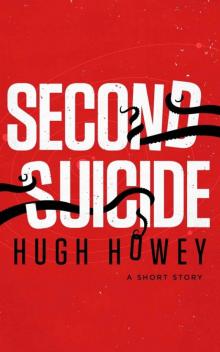 Second Suicide: A Short Story
Second Suicide: A Short Story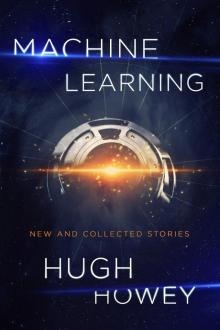 Machine Learning: New and Collected Stories
Machine Learning: New and Collected Stories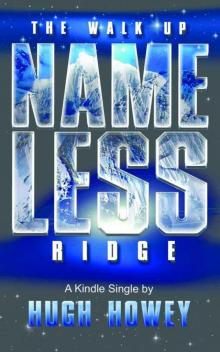 The Walk Up Nameless Ridge
The Walk Up Nameless Ridge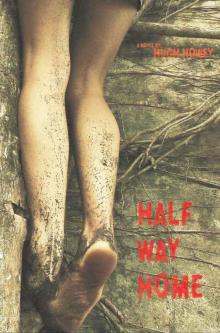 Half Way Home
Half Way Home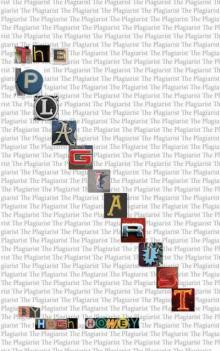 The Plagiarist
The Plagiarist Peace in Amber
Peace in Amber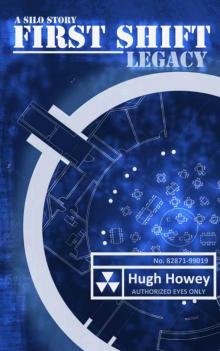 First Shift: Legacy
First Shift: Legacy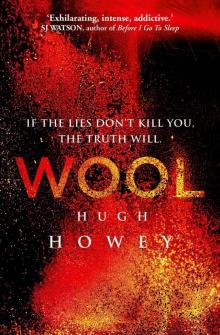 Wool
Wool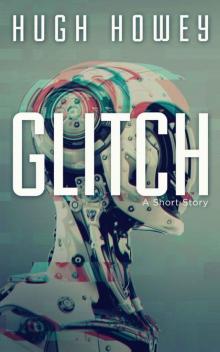 Glitch
Glitch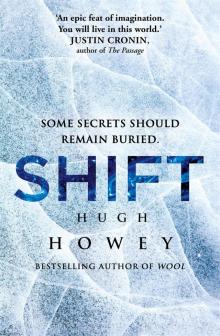 Shift
Shift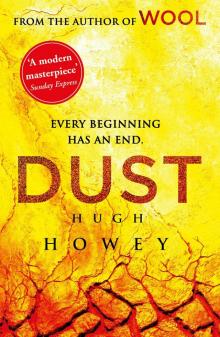 Dust
Dust Molly Fyde and the Land of Light
Molly Fyde and the Land of Light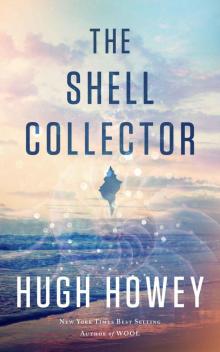 The Shell Collector
The Shell Collector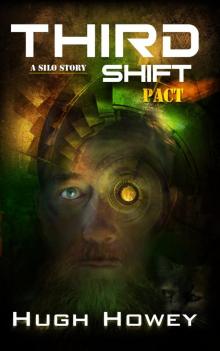 Third Shift: Pact
Third Shift: Pact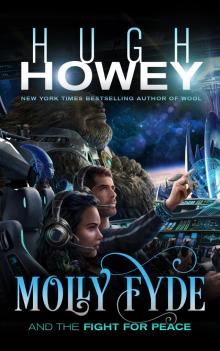 Molly Fyde and the Fight for Peace
Molly Fyde and the Fight for Peace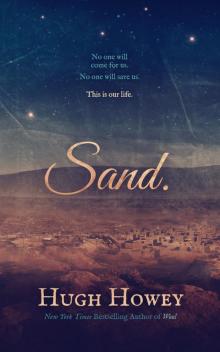 Sand Omnibus
Sand Omnibus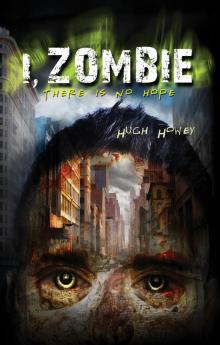 I, Zombie
I, Zombie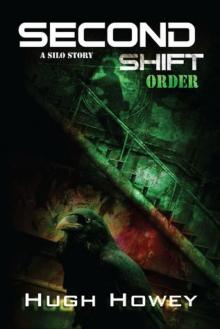 Second Shift: Order
Second Shift: Order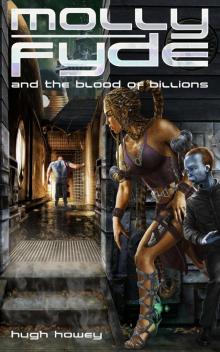 Molly Fyde and the Blood of Billions
Molly Fyde and the Blood of Billions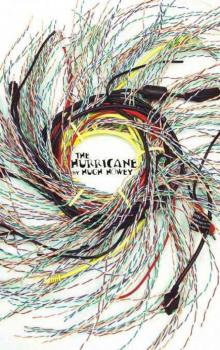 The Hurricane
The Hurricane The Box
The Box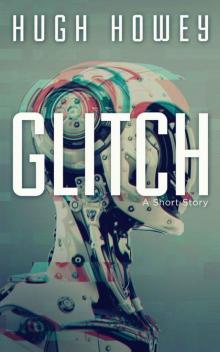 Glitch_A Short Story
Glitch_A Short Story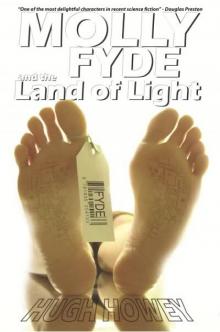 Molly Fyde and the Land of Light tbs-2
Molly Fyde and the Land of Light tbs-2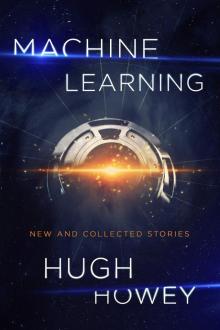 Machine Learning
Machine Learning Resist
Resist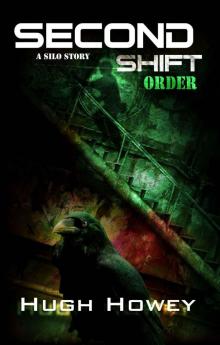 Second Shift - Order (Part 7 of the Silo Series) (Wool)
Second Shift - Order (Part 7 of the Silo Series) (Wool)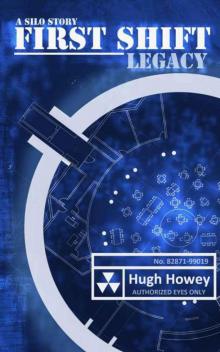 First Shift - Legacy s-1
First Shift - Legacy s-1 Stories on the Go: 101 Very Short Stories by 101 Authors
Stories on the Go: 101 Very Short Stories by 101 Authors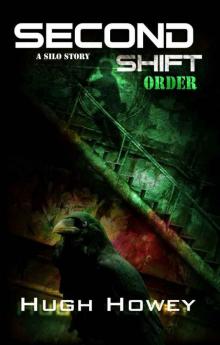 Second Shift - Order s-2
Second Shift - Order s-2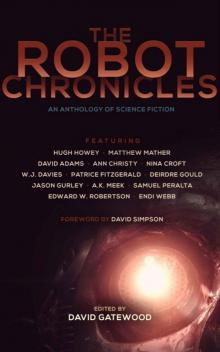 The Robot Chronicles
The Robot Chronicles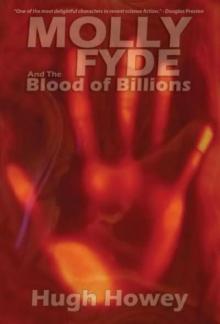 Molly Fyde and the Blood of Billions tbs-3
Molly Fyde and the Blood of Billions tbs-3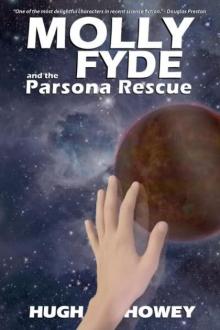 Molly Fyde and the Parsona Rescue tbs-1
Molly Fyde and the Parsona Rescue tbs-1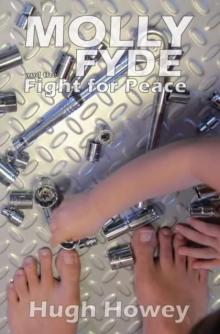 Molly Fyde and the Fight for Peace tbs-4
Molly Fyde and the Fight for Peace tbs-4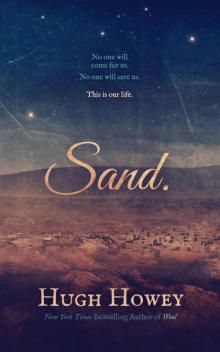 Sand
Sand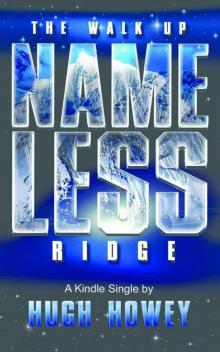 The Walk Up Nameless Ridge (Kindle Single)
The Walk Up Nameless Ridge (Kindle Single) Wool Omnibus Edition (Wool 1 - 5)
Wool Omnibus Edition (Wool 1 - 5) The World of Kurt Vonnegut: Peace in Amber
The World of Kurt Vonnegut: Peace in Amber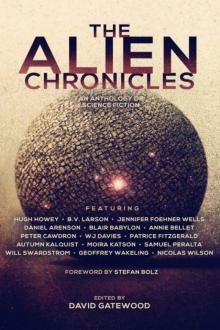 The Alien Chronicles
The Alien Chronicles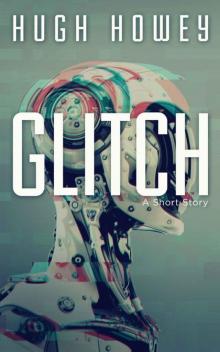 Glitch: A Short Story (Kindle Single)
Glitch: A Short Story (Kindle Single)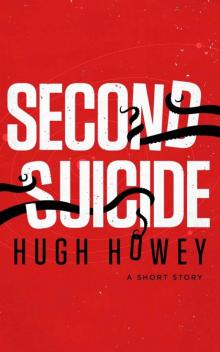 Second Suicide: A Short Story (Kindle Single)
Second Suicide: A Short Story (Kindle Single)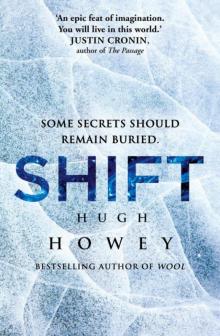 Shift (silo)
Shift (silo)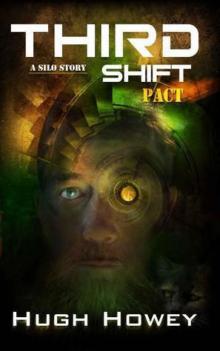 Third Shift - Pact
Third Shift - Pact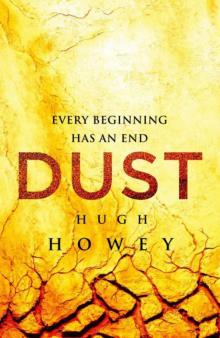 Dust s-9
Dust s-9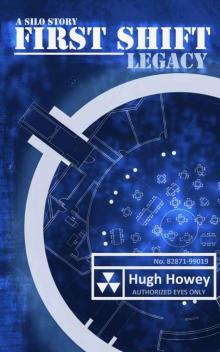 First Shift - Legacy (Part 6 of the Silo Series) (Wool)
First Shift - Legacy (Part 6 of the Silo Series) (Wool)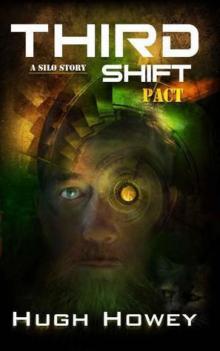 Third Shift - Pact s-3
Third Shift - Pact s-3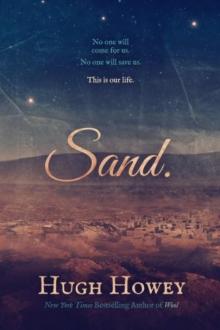 Sand: Omnibus Edition
Sand: Omnibus Edition The Box: A Short Story
The Box: A Short Story